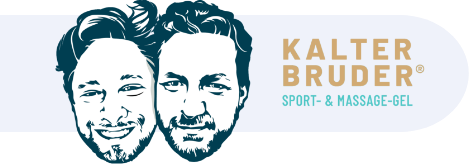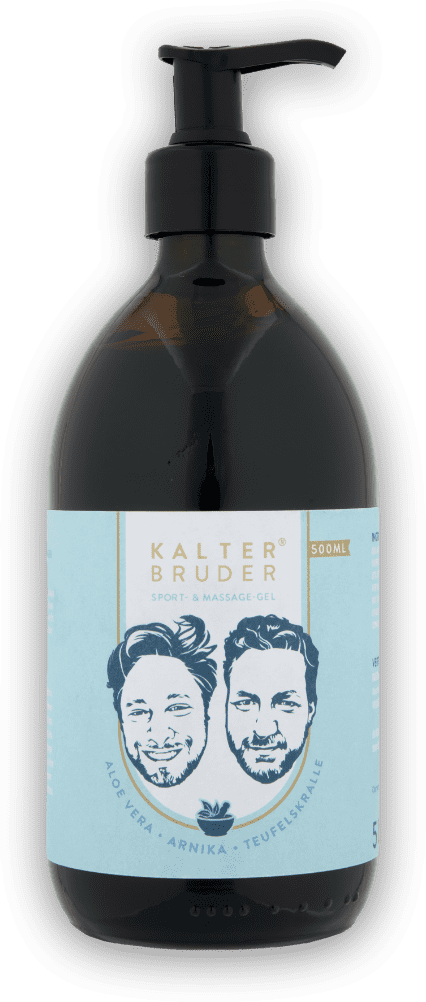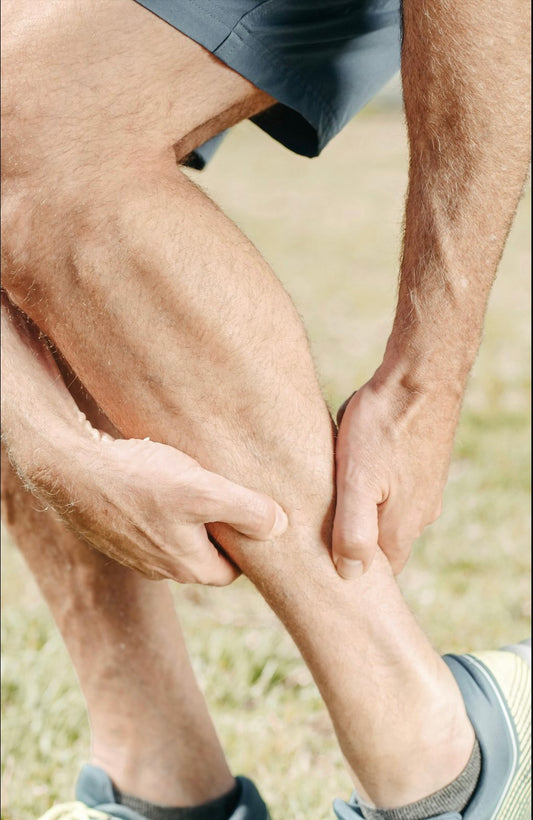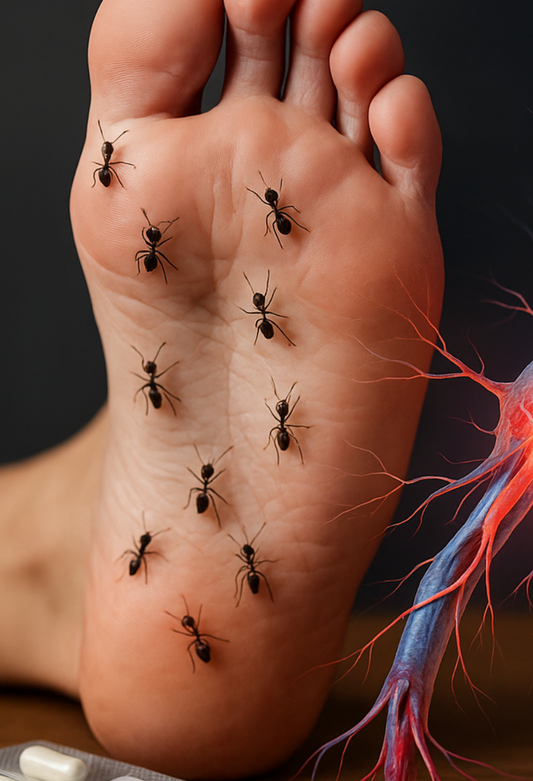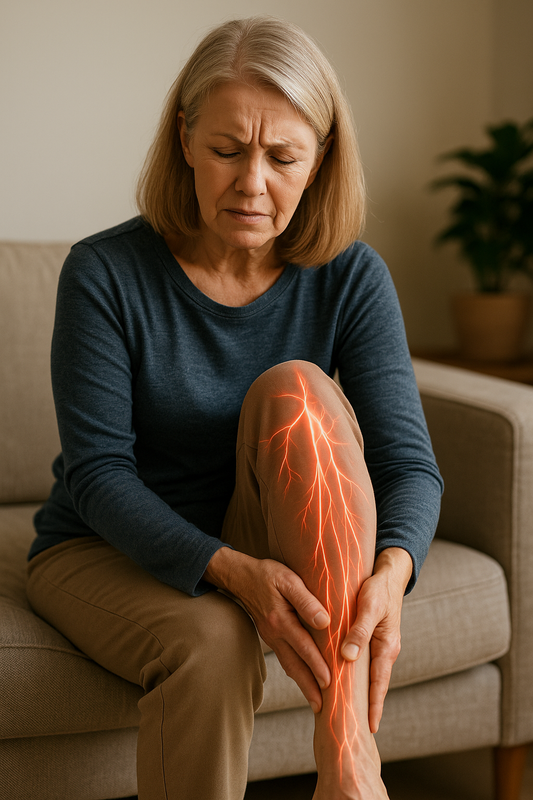Why more and more people with chronic pain and sleep problems swear by it and what you should pay attention to the first time
Have you ever thought about trying acupuncture? The thousands of years old method of traditional Chinese medicine (TCM) has long since found its way into the western world and is used to treat a wide range of ailments. Acupuncture can be a valuable addition to conventional therapy, especially for people who suffer from chronic nerve pain, restless legs syndrome (RLS) or polyneuropathy. The small needles are not only supposed to relieve pain, but also calm the nerves and improve sleep - a blessing for anyone who struggles with restless legs all night long or whose nerves are on edge. But what is really behind it? How does acupuncture work and what should you look out for when considering this form of therapy? Let's delve into the world of acupuncture together and find out how it can help you bring your body back into balance and sustainably improve your quality of life.
First Animal then Human
Did you know that the first acupuncture treatments may not have been used on humans, but on animals? Archaeologists have found evidence that acupuncture was used in ancient times, primarily on horses and other livestock. The first written records of acupuncture date back to 100 BC, but the practice itself may be much older. Researchers suspect that herders in Asia noticed that certain points on the bodies of animals affected their health when pressed or pricked - an observation that eventually led to the development of acupuncture in humans.

Understanding acupuncture: How do the needles affect your body?
Acupuncture is based on the idea that the human body is permeated by a life energy, known as "Qi". This energy flows through specific pathways called meridians. According to traditional Chinese medicine, illnesses and complaints arise when this flow is disrupted. By inserting fine needles at specific points along these meridians, the flow of Qi is brought back into balance.
But what does this look like from a scientific point of view? While the exact mechanisms are not yet fully understood, there are several possible explanations:
- Endorphin release: Some studies suggest that acupuncture stimulates the release of endorphins – the body’s natural painkillers – which may reduce the perception of pain.
- Nerve stimulation: Inserting the needles could stimulate certain nerves, which in turn stimulate the brain to release pain-relieving substances or promote blood flow.
- Influence on the immune system: There is evidence that acupuncture strengthens the immune system and promotes anti-inflammatory processes in the body.
Regardless of which explanation is correct, many patients report significant improvements after acupuncture treatments, be it for chronic pain, sleep disorders or stress.
Acupuncture for Polyneuropathy
If you suffer from polyneuropathy, you know first-hand how distressing the symptoms can be. Pain, numbness and tingling that make everyday life a challenge. One of the promising alternative treatments that you may not have tried yet is acupuncture. But can it really help?
A 2017 study published in the Journal of Pain Research examined the effects of acupuncture on patients with diabetic polyneuropathy. 60 participants received regular acupuncture treatments over a period of 12 weeks. The results were impressive: Patients reported a significant reduction in pain and numbness. What was particularly interesting was that the improvements were not only noticeable immediately after the sessions, but also continued for weeks after the treatment had ended.
The study also showed that acupuncture significantly improved patients' quality of life. Participants reported that they were able to sleep better and were less afraid of future pain episodes. For many, this meant finally bringing some normality back into everyday life.
If you suffer from chemotherapy-induced polyneuropathy, acupuncture may also be an option for you. Another study, published in Acupuncture in Medicine in 2020, examined 70 patients suffering from this particular form of polyneuropathy. Here, too, acupuncture led to significant relief of symptoms. What was particularly remarkable was that improvement was achieved even in severe cases, making acupuncture a valuable addition to conventional therapy.

Acupuncture for Restless Legs
If you suffer from restless legs syndrome (RLS), you are probably familiar with the nightly torments that this condition brings with it. The uncontrollable urge to move your legs often robs you of sleep and makes everyday life a challenge. But acupuncture could help.
A randomized controlled trial published in the Journal of Clinical Neurology in 2019 examined the effectiveness of acupuncture in RLS patients. 58 patients participated in the study and received acupuncture treatments over eight weeks. The results were promising: Participants reported a significant reduction in RLS symptoms and a marked improvement in sleep quality. What was particularly interesting was that the positive effects of acupuncture continued even six weeks after the last treatment. Another study, published in Sleep Medicine , showed that acupuncture not only relieves symptoms but also significantly improves the quality of life of those affected. Participants reported feeling less exhausted during the day and their mood noticeably improved. For many, this meant they could finally go to bed without fear of a sleepless night.
What you should pay attention to when choosing an acupuncturist
Not every acupuncturist is the same. If you want to try acupuncture, you should make sure that the practitioner has a thorough training in traditional Chinese medicine. In Germany, any alternative practitioner can offer acupuncture, but the quality of the training varies greatly. Ideally, you should choose someone who can prove that they have completed certified additional training in acupuncture.

Studies on the effectiveness of acupuncture
The effectiveness of acupuncture has been well studied scientifically, and the results are promising. A 2012 meta-analysis published in the journal Archives of Internal Medicine analyzed 29 studies with a total of almost 18,000 participants. The study concluded that acupuncture was significantly more effective than sham treatments in treating chronic pain, particularly back pain, neck pain, and headaches.
Another study, published in the Journal of Pain in 2020, examined the effects of acupuncture on the nervous system and found that regular acupuncture sessions resulted in a significant reduction in pain sensitivity in patients with chronic pain.
Practical tips for your first acupuncture session
If you decide to try acupuncture, there are a few things to keep in mind:
- Regularity is key: Acupuncture works best when used regularly. Schedule a session at least once a week to see consistent results. The studies mentioned above showed that continuous sessions over several weeks produce the best results.
- Monitor symptoms: Keep a diary of your symptoms to see how they change over the course of acupuncture treatments. Also note how your sleep and general well-being develop. This will help you and your acupuncturist to adjust the treatment as best as possible.
- Communication with the acupuncturist: Be open with your acupuncturist about your symptoms and how you feel after each session. Good communication is crucial to tailoring treatment to your individual needs and achieving the best results.
- Supportive measures: Combine acupuncture with other therapies, such as physical therapy or gentle yoga, to enhance the positive effects. A combination of acupuncture and moderate exercise has been shown to further relieve symptoms.
- At the acupuncturist: If you have found a trustworthy acupuncturist in your area – most of them are already rated on Google – then you can take a few things into account to ensure that the treatment promises the greatest possible success:
- Relax: Go into the session relaxed and try not to tense up during the treatment. This will help your body respond better to the needles.
- Wear comfortable clothes: It is advisable to wear loose clothing so that the acupuncturist can easily reach the appropriate points on your body.
- No big meal before: Eat a light meal before the session, but avoid eating heavy food shortly before. Your body should not be busy digesting.
- After the session: Plan some rest time after the treatment to fully enjoy the effects of acupuncture. Many people feel relaxed and tired afterwards - so treat yourself to a little time out.
Conclusion: What you can take away for yourself
Acupuncture can be a valuable addition to conventional treatment methods, especially if you suffer from chronic pain, stress or sleep disorders. Scientific studies support the effectiveness of acupuncture, and many people report positive experiences. If you want to try acupuncture, pay attention to the qualifications of the acupuncturist and go into the treatment with an open and relaxed attitude. It could be a small needle that makes a big difference to your well-being.
Be brave and give it a try – maybe acupuncture is exactly what you need to do something good for your body and mind!

